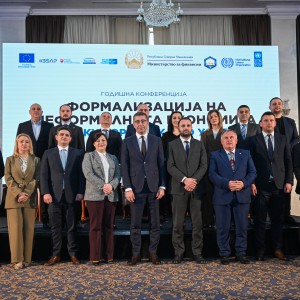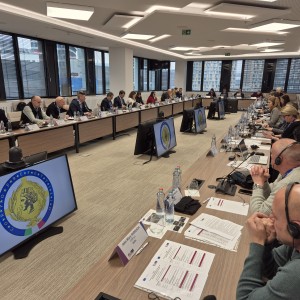News
14 May 2025 |News
Montenegro Advances Plans to Formalize Tourism Sector with ILO Support
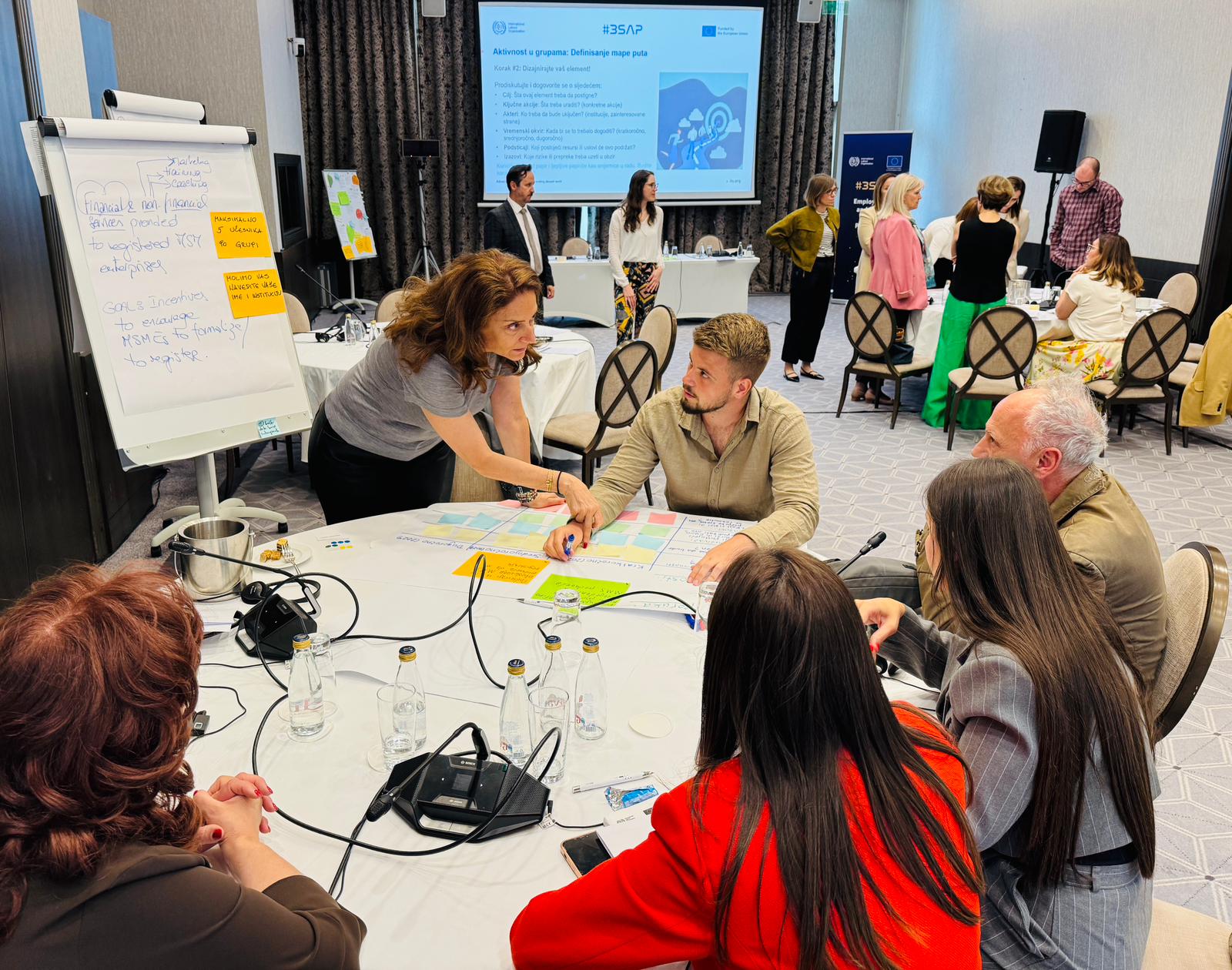
©ILO Co-creating Solutions for Enterprise Formalization in the Tourism Sector, 12 May 2025, Montenegro
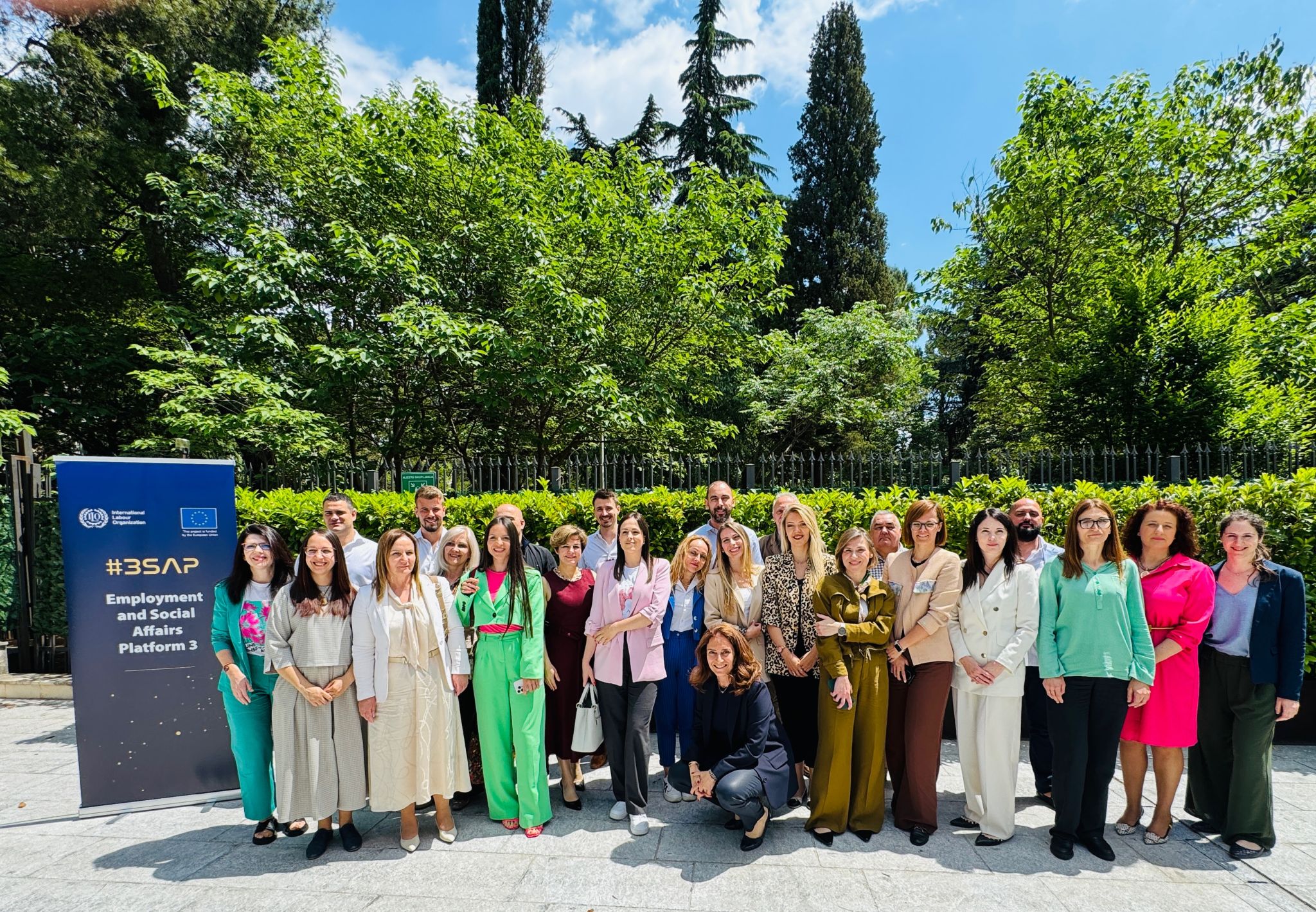
©ILO Co-creating Solutions for Enterprise Formalization in the Tourism Sector, 12 May 2025, Montenegro
Stakeholders identify national priorities for formalization of enterprises in a participatory workshop under the ILO’s ESAP 3 project
Podgorica, Montenegro – 12-13 May 2025
National stakeholders in Montenegro took a major step toward addressing informality in the tourism sector during a two-day workshop convened under the Employment and Social Affairs Platform (ESAP 3), a regional project funded by the European Union and implemented by the International Labour Organization (ILO) in the Western Balkans.
The workshop, “Co-creating Solutions for Enterprise Formalization in the Tourism Sector”, brought together 27 key national actors, 18 of which were women, including representatives from the Ministry of Finance, Ministry of Tourism, Ministry of Labour, Competitiveness Council, Internal Revenues, employers’ and workers’ organizations, chamber of commerce, and Occupational Safety and Health Inspectorate. Ada Huibregtse, the Chief Technical Advisor of the ESAP 3 project, opened the event emphasizing “the opportunity to establish a model of how we can work together—public institutions, social partners, and international organizations—to co-create realistic, targeted pathways to formalization that protect workers, empower businesses, and strengthen the economy”. The presence of EU Representative Brigitte Kuchar on the second day reaffirmed the EU’s commitment to supporting Montenegro in its path toward a more inclusive, sustainable, and formal labour market.
In a highly participatory format facilitated by international experts Julian Schweitzer and Alina Dausendschön, stakeholders explored the challenges of informality in Montenegro’s growing tourism sector and co-developed a roadmap to guide future policy action. The ILO Senior Enterprise Specialist, Rania Bikhazi brought into attention the need for concerted action to formalize businesses and increase productivity and sustainability in the tourism sector by looking for “out-of-the-box” solutions and daring uncharted territories. Drawing from ILO’s global experience and EU practices, participants emphasized the need for:
- Simplified and digitalized registration procedures
- Regulation of online rental platforms
- Incentives for micro and small businesses to formalize
- Enhanced protection for seasonal and informal workers
- Better awareness and enforcement of existing laws
- Promotion of an entrepreneurship education to ensure a change in the mindset and a move towards formality
The ILO presented its integrated formalization framework, including one-stop-shops, productivity-enhancing incentives, and enforcement tools—while stressing the importance of social dialogue and multi-stakeholder ownership in the process.
Building on these discussions, stakeholders jointly identified four priority actions to accelerate formalization efforts:
- Establish a Digital Registration Platform for accommodation providers and tourist services, linked to tax compliance and safety monitoring.
- Regulate Online Rental Platforms to ensure fairness, quality, and legal compliance in tourism services.
- Promote Formal and Decent Seasonal Employment, especially in rural and coastal areas.
- Provide Financial and Non-Financial Incentives for private accommodation hosts and tour guides to move out of the grey economy.
A national roadmap was drafted, which will serve as a foundation for ESAP 3 technical assistance and future collaboration with Montenegro’s institutions.


